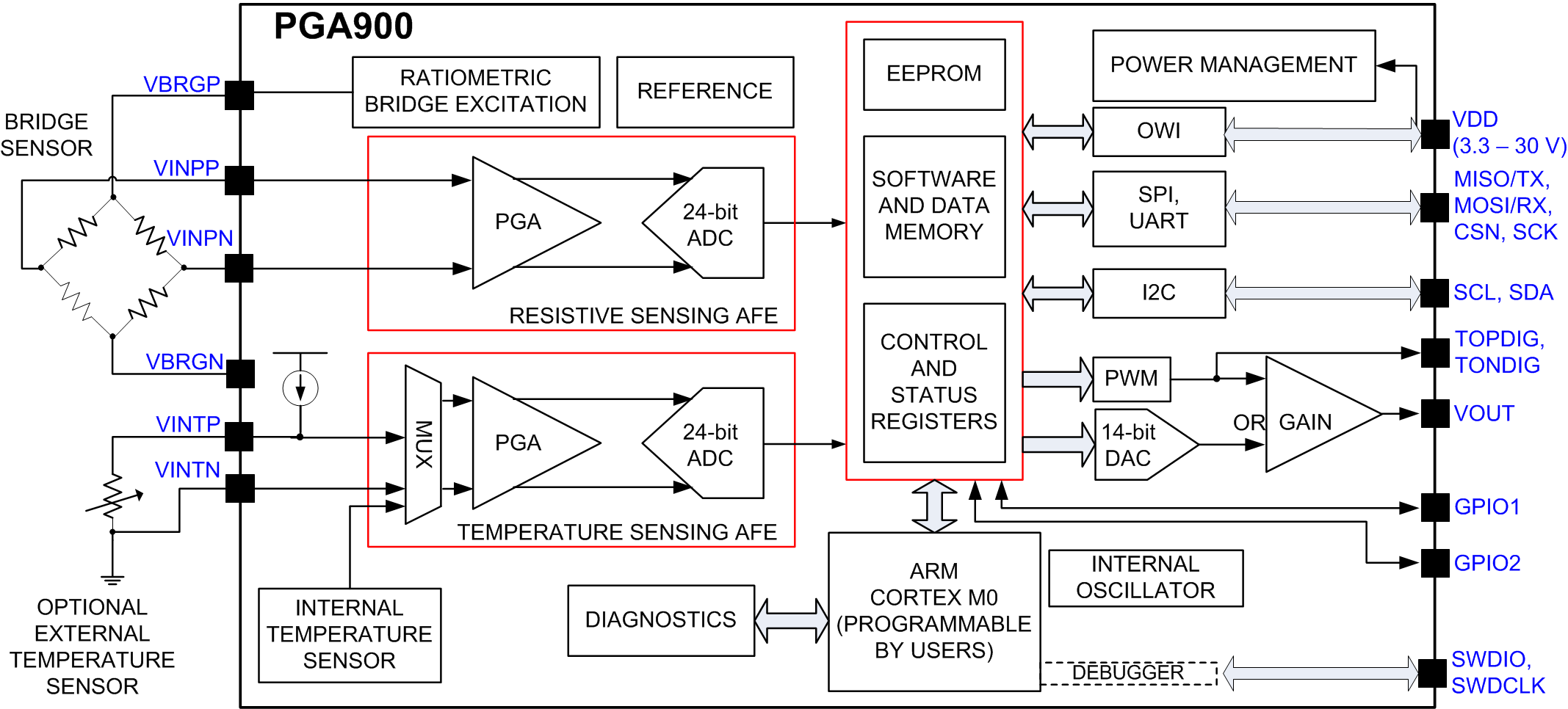SBOA596 May 2024 ADS124S08 , INA326 , MSPM0G3507 , OPA387 , PGA900 , REF200
3.4 Integrated Designs
In an actual temperature measure design, some customers need to do calibration, remove offset error, compensate linearity. An MCU always is necessary in modern temperature measure system. MSPM0G3507 is a Cortex-M0+ MCU and integrated two zero-draft-precision amplifiers, precision reference, and a two 12bit-4MSPS ADCs with 17 external channels. With hardware averaging, the ADC resolution is potentially improved to 14bits with 250Ksps rate.
The designer can implement 2.1 descriptive discrete designs with MSPM0G3507 single chip for temperature signal conditioning. Also, the designer needs to keep ΔR<0 in all conditions since MSPM0G3507 can power supply with a single positive power supply. With ΔR<0, according to Equation 1, the output can be a positive output. The designer does not need to power internal amplifier with dual supply.
 Figure 3-4 Single Chip MCU Block Figure for RTD Signal
Conditioning
Figure 3-4 Single Chip MCU Block Figure for RTD Signal
ConditioningPGA900 sensor conditioning chip is another integrated design for temperature measure. TI: PGA900 is a resistor sensor signal conditioning chip with an ARM Cortex-M0+ integrated. the block figure as Figure 3-5 shows. With integrate adjustable constant current, PGA, ADC and MCU make PGA900 is a single chip design for temperature measure too. Wide power supply character (3.3 approximately 30V) and miscellaneous output format is potential to meet miscellaneous industry application.
 Figure 3-5 ASIC for RTD Signal Conditioning
Figure 3-5 ASIC for RTD Signal ConditioningThe customer can interface NTC and RTD to resistive sensing AFE channel (main channel) or temperature sensing AFE channel (aux channel). The output voltage of main channel is non-linear for a single sensor since it is excited by a precision internal voltage reference. This is not an issue for an MCU system, MCU can calculate the relationship between sampling voltage and varied resistor. Aux channel is excited by an adjustable constant current, so the output voltage is linearity with varied resistor and potentially have an offset voltage.